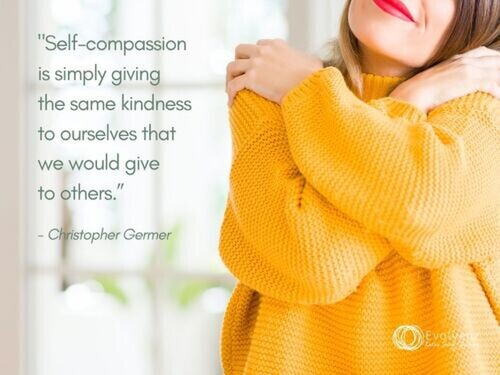Self compassion
What is self-compassion?
Life dishes up pain for all of us. We all get to repeatedly experience disappointment, frustration, failure, rejection, illness, injury, conflict, hostility, grief, fear, anxiety, anger, sadness, guilt, loss, loneliness, health issues, financial issues, relationship issues, work issues, and so on. Unfortunately, when we experience great pain, we often don’t treat ourselves very well. Self-compassion involves acknowledging your own suffering and responding kindly. In other words, treating yourself with the same warmth, caring and kindness that you’d extend to someone you love if they were in similar pain. For thousands of years, self-compassion has played a central role in many religious and spiritual practices, and now it is becoming increasingly important in many models of therapy, coaching and counselling. A wealth of research shows the benefits of self-compassion with a wide range of clinical issues, from depression and anxiety disorders to grief, trauma and addiction.
The six building blocks of self-compassion
Self-compassion is often foreign to many people, and for some it can feel overwhelming, threatening or just ‘too hard’. Luckily, though, we can build self-compassion through ‘baby steps’, so you don’t feel any of those things.We can start with any one of the six basic ‘building blocks’ of self-compassion – ideally, whichever one we find easiest – and we can work on that for a while. Then once we’ve made some progress with that element, we can start experimenting with another.
- acknowledging pain
- unhooking from self-judgment
- acting with kindness
- acceptance
- validation
- connectedness
If you would like to learn more follow this link to my newsletter https://bit.ly/38k2d6j


